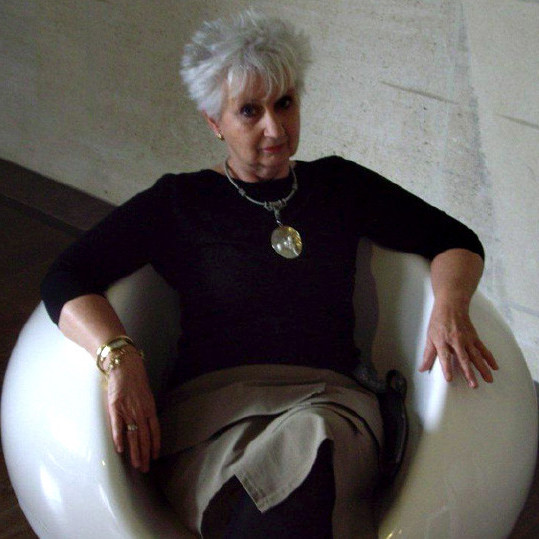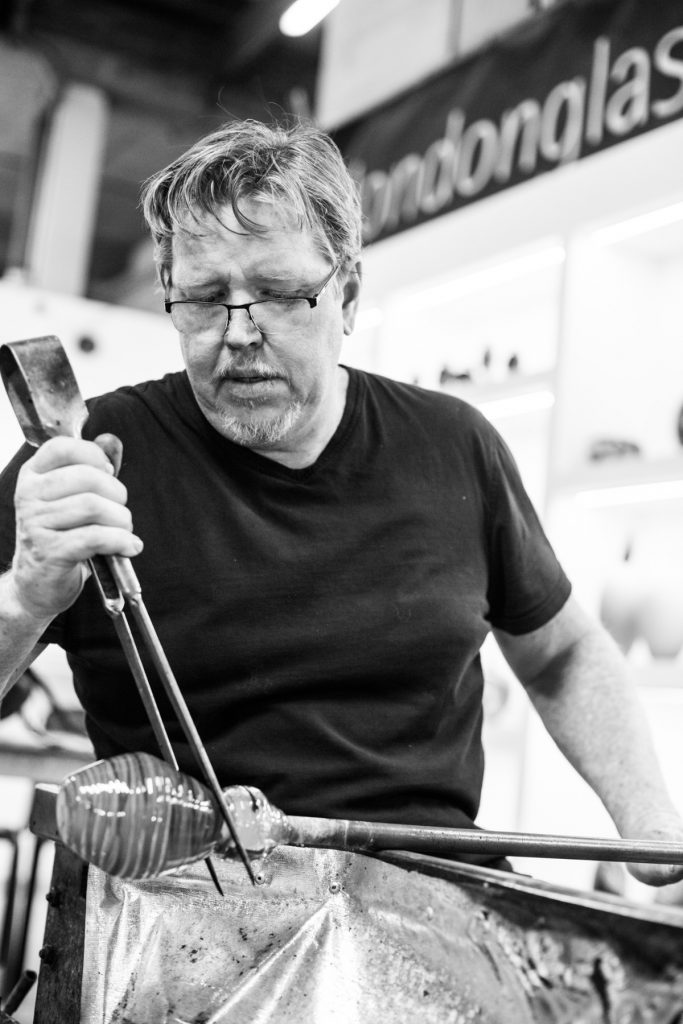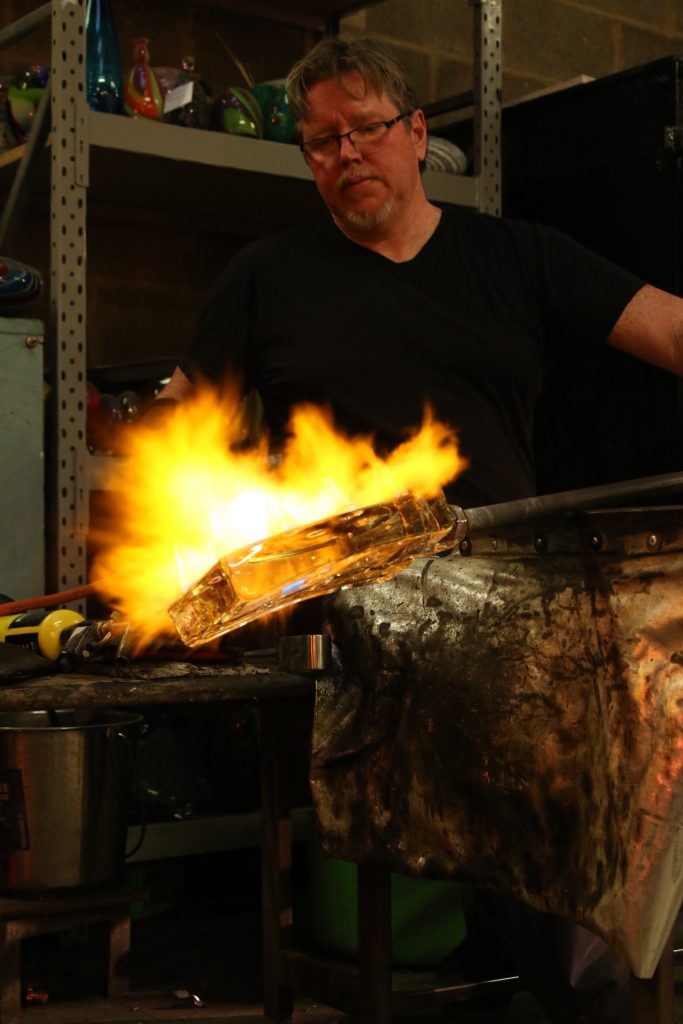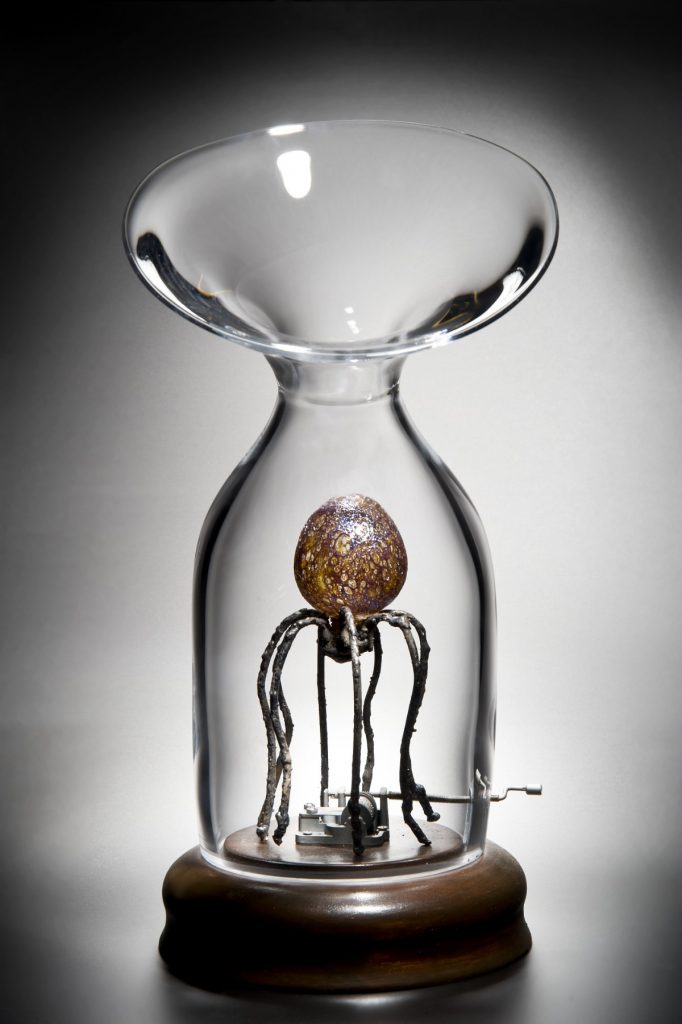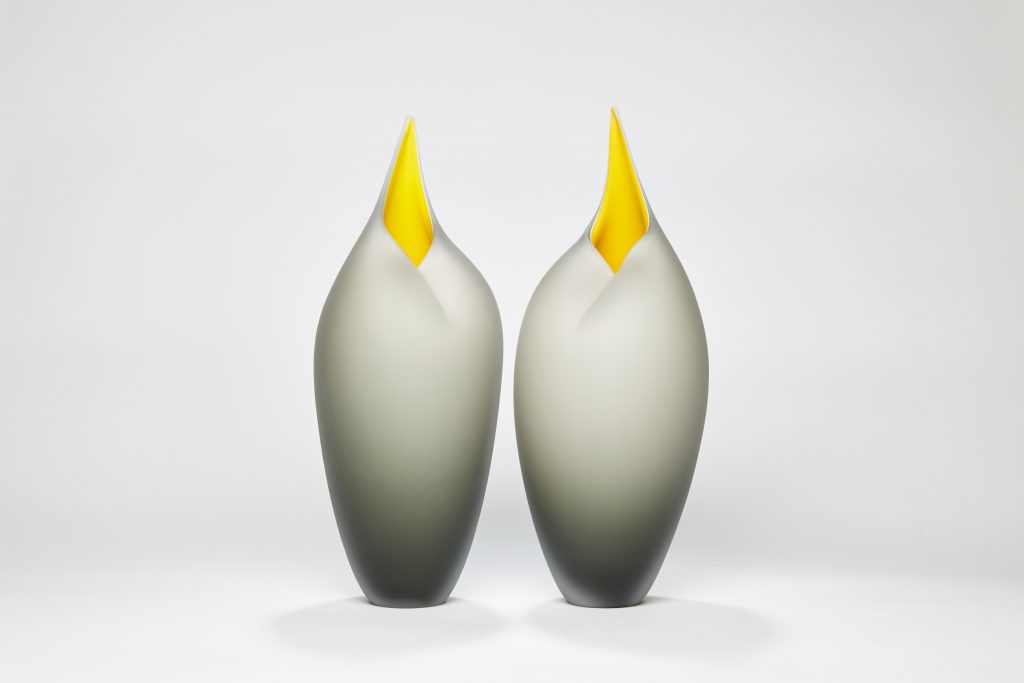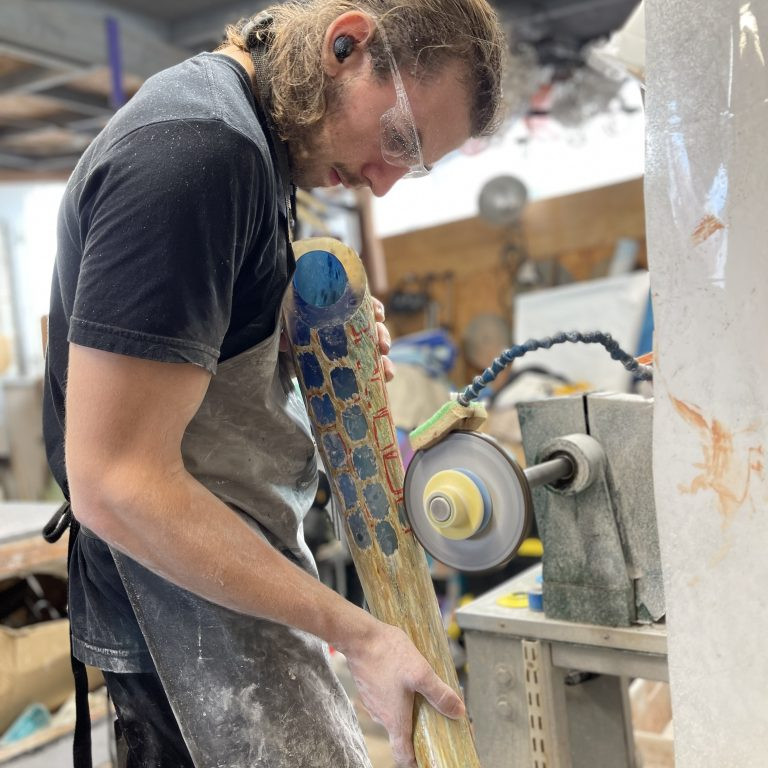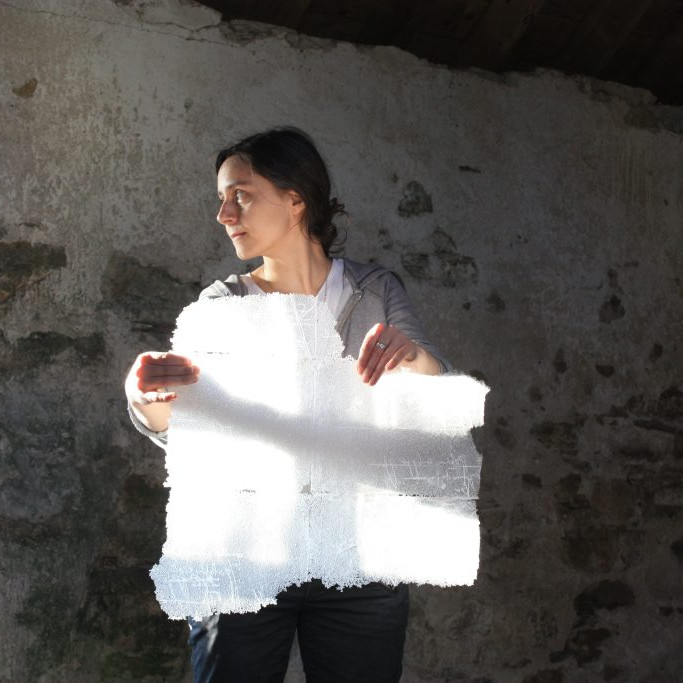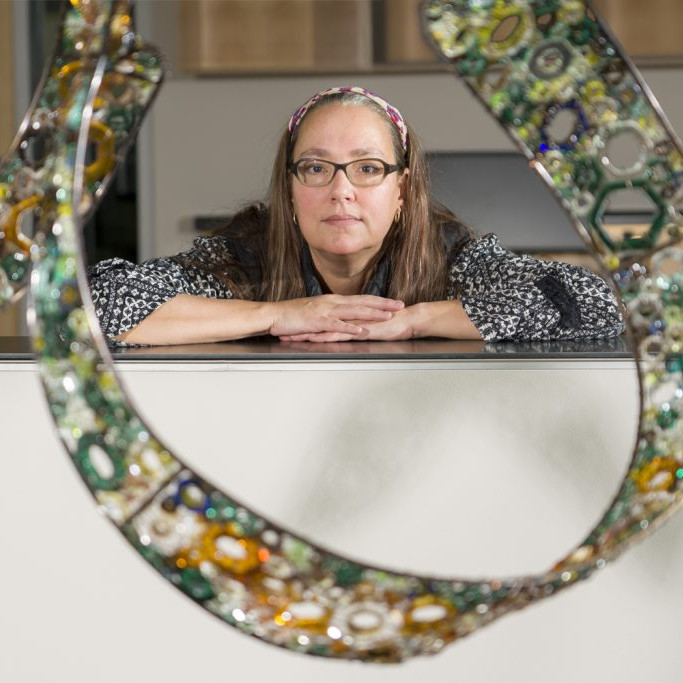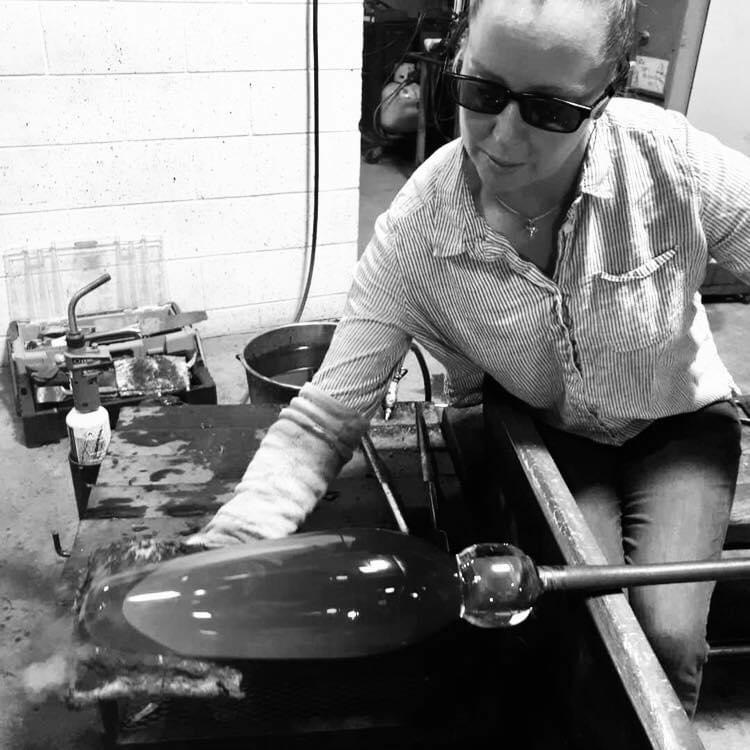Bruce Marks Glass Artist
Your Bird Series is about form, can you discuss the importance of human recognition of form and your bird series?
I think that certain forms can enter your subconscious directly and make something tingle deep down there. I strive to achieve this in my work and feel that I have had the most success at this with my bird series.
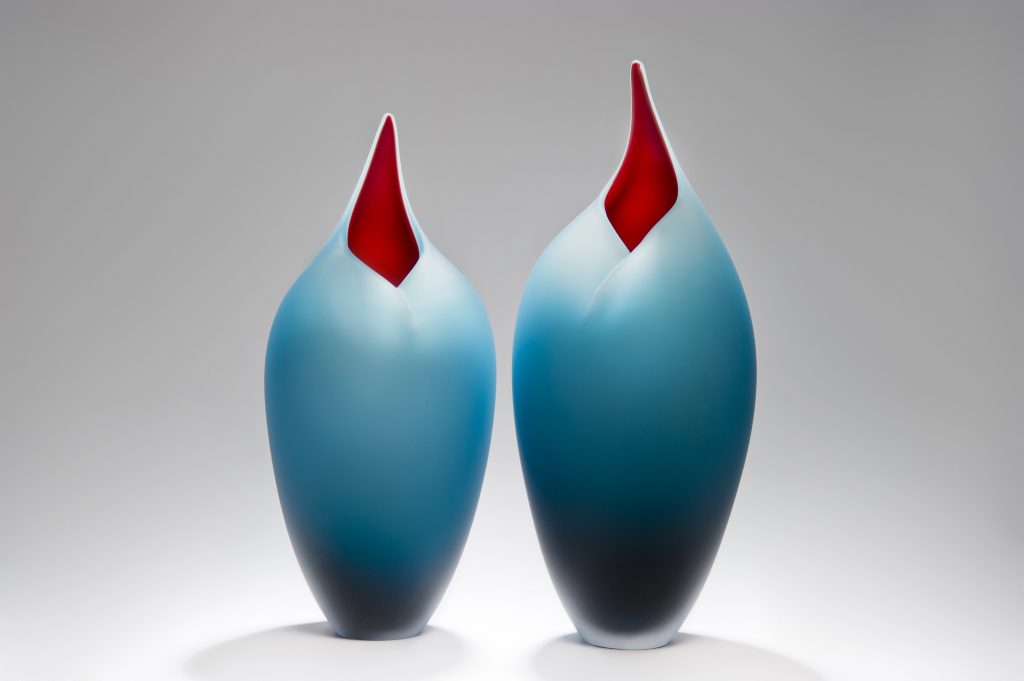
The birds have evolved over the past 9 years that I have been making them and I feel that they are in their final stage of evolution, they are as close to perfect as I can get them. I think form is to your eye what music is to your ear.

Explain how you have had to adapt your glass practice to allow you to work on your own and why is it important to you?
I now have a very good assistant, Lyndsay who has changed the way I work for the better. I originally worked on my own whilst waiting for the perfect assistant.
Discuss how you combine form and colour in your work.
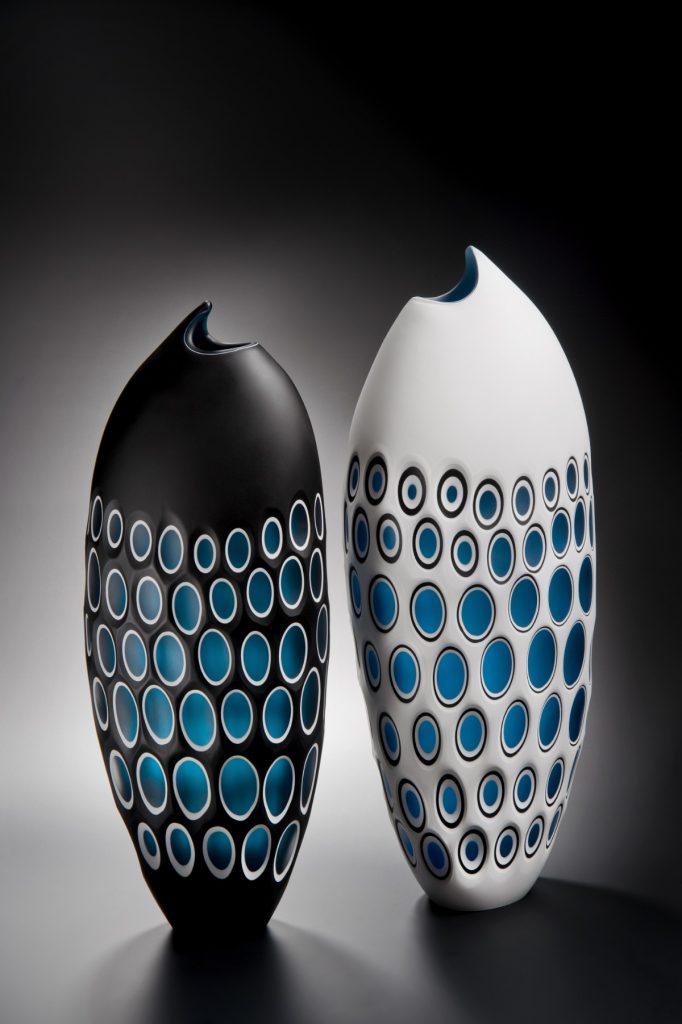
With glass it is possible to use colour to the extreme, but I have always preferred to use the colour to accentuate the form rather than dominate it. I normally use a single interior colour and a graduated exterior Colour with white between the two to act as a canvas.
Discuss the relationship of colour in your fish series. How colour is used both internally and externally?
The fish series was an exercise in colour arrangement on a relatively simple form. I wanted to experiment with bringing the internal colour to the outside and allowing light to pass through.
You also tutor at UCA Farnham, discuss.
I am a visiting tutor at UCA Farnham, the University where I completed my MA in glass. I find this to be a not only enjoyable but beneficial to my own practice. By helping the students to understand what is required and important in a professional practice I am constantly reflecting on my own work. I also feel really energized to see the incredible work that they are creating
What are the advantages of your memberships to various Glass Artist Societies?
It is important to be involved in the community of your chosen field and by being a member of these societies it opens all sorts of opportunities for me to meet and be part of the glass community.
Tell us about the Hotshop that you work in and why it continues to give you inspiration.
I work at London glassblowing which is owned and run by Peter Layton. We recently celebrated our 43rd anniversary as a studio which is a testament to the incredible energy and creativity of Peter and his team. As a member of the team you bring your skill and knowledge to the co-operative, but you also have the time and space to create your own unique work.
Why it is important to have a viewing area?
I think it a good idea to be able to show the public what is involved in the making of our work. It creates appreciation for the work and open a dialog between customer and artist.
When can the public see you working?
We are open everyday between 10am and 6pm except Sundays
How important is the Hotshop in the education of the public to contemporary glass?
It is very important, one of the most common things said to us in the hot shop is “I didn’t realise what is involved in (and how much effort goes into) making a piece of glass.”
Do you work to commission?
I do take commissions for both my existing work and for work designed by other artists and customers. I feel that the commission process can be rewarding to both client and artist if it is approached in the correct way. It often pushes the boundaries of your skill and creativity.
You are constantly introducing time in your work, Boats and again in Time Stood Still, discuss.
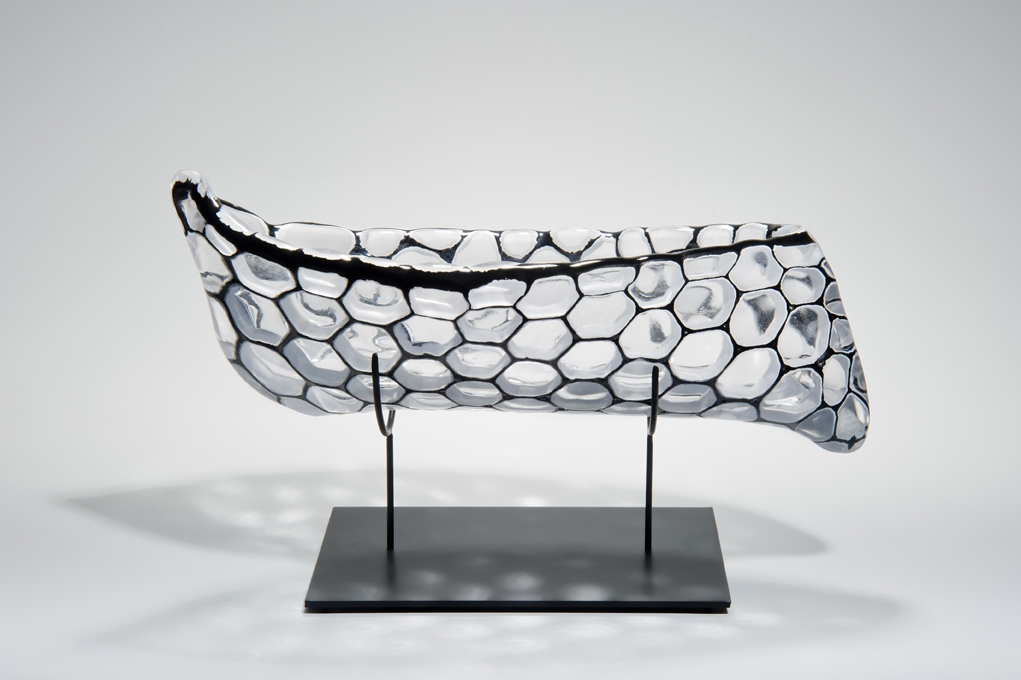
I think time is a fascinating thing. As you get older your perspective of time changes, you realise that your perception of time is not reliable, you feel like something that may have happened ten years ago feels like it happened last week, and time seems to be speeding up.
 Take one piece that you found hard to sell (let go of) and why?
Take one piece that you found hard to sell (let go of) and why?
I recently sold a piece that was part of my Fragile identity series called “Somewhere over the rainbow” I found it quite emotional as the piece had come about in response to my mother’s (and Grandmothers) fight against depression. Fortunately, the lady who purchased it was really taken with the emotional side of it and understood the narrative immediately, I know it’s gone to a good home.
Explain an exhibition or series of work that has been very influential in the growth of your career?
I think that being involved with London Glassblowing from the beginning has had the most influence on my career. My Glass career began there and continues to this day, it is a fun collaborative and creative environment headed up and owned by Peter Layton.
Completing an MA at Farnham also plays a big factor in the way I work and think about my work.
Contact:
Bruce Marks
Studio Manager
London glassblowing
Instagram Brucemarksglass
Deborah Blakeley, Melbourne, Australia
Interview by Deborah Blakeley, July 2019
Think a colleague or friend could benefit from this interview?
Knowledge is one of the biggest assets in any business. So why not forward this on to your friends and colleagues so they too can start taking advantage of the insightful information the artist has given?
Other artists you may be interested in:

